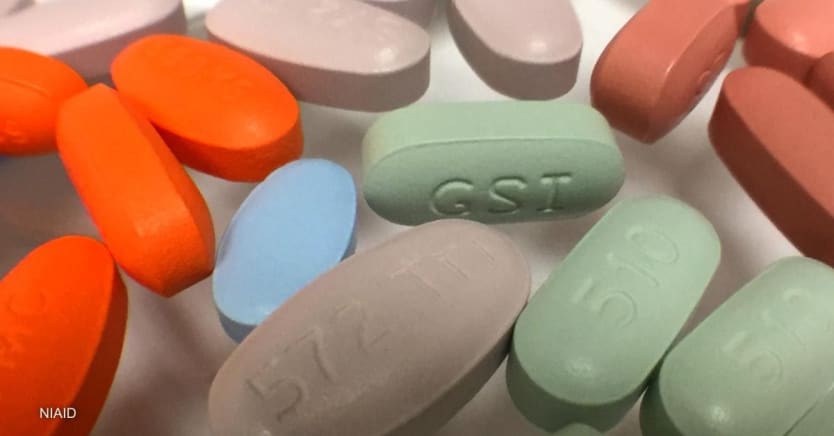
Over the last nearly two years, the COVID-19 pandemic has shed light on the vulnerability of our global health care system. Out of necessity, we have come together to ensure that treatments and vaccines are available across the world, but this shift in effort has put a strain on other diseases such as HIV/AIDS.
Dec. 1 marks World AIDS Day — a time to reflect on how far we have come as a global community to combat HIV/AIDS, but also serves as a reminder to acknowledge how much work we must still do.
Since 2000, the number of people dying from HIV globally has fallen by half. Viatris, a new kind of global health care company, has played a significant role in this. As an example, in 2020, 11.2 million people on HIV treatment used Viatris antiretrovirals , meaning that nearly 50% of people on treatment for HIV in LMICs use one of Viatris’ products. Viatris has also provided 5 billion doses of ARVs to patients in low- and middle-income countries. In doing so, the following is what we have learned.
1. There are challenges in providing HIV medication but there are also solutions.
How COVID-19 changed the approach to HIV
At this week's International AIDS Society Conference, experts discussed how COVID-19 forced innovations in helping people with HIV.
The pharmaceutical needs of patients in LMICs are frequently neglected. This is because products that are designed around the needs of patients in high-income countries are often not suitable fits for those in LMICs. Viatris has always tried to understand and appreciate the local needs, logistical challenges, and the state of health care infrastructure of LMICs before offering sustainable solutions.
For instance, cold-chain capacities in LMICs are much more limited, making it important to develop heat-stable formulations. Health facilities are more dispersed, with public transit systems weaker. If we can reduce the number of times patients have to go to the pharmacy for refills, it can be the difference between patients staying on or going off treatment. Serving patients in LMICs requires new ways of thinking, rather than simply relying on what has been done elsewhere.
At Viatris, we adapt our approaches to meet local needs, but always with an eye toward long-term sustainability. Right from day one as Viatris, we focused on our global strategy, and LMICs were always a part of that strategy as it relates to anti-infectives and ARVs. The sustainability of this business model was more around high-volume products, irrespective of their margin. Volume drives costs down, which enables us to serve more patients. As a result, we have been able to create a sustainable model and serve more than 40% of people on treatment for HIV around the world.
Today, our ARV products treat five times more people living with HIV per day than all of the branded originator companies combined. In 2009, we were the first company to launch a one-tablet-once-a-day treatment for patients in LMICs, and it took three years for the next competitor to come to market. In 2017, we launched a reduced-dose version of this treatment, again two years ahead of competitors.
Later in 2017, we were the first company to get regulatory approval for the World Health Organization’s current preferred first-line treatment, which we launched at just over $0.20 per day via a breakthrough pricing agreement with the Joint United Nations Programme on HIV/AIDS, Clinton Health Access Initiative, Bill & Melinda Gates Foundation, and UNITAID.
We have also been at the forefront of developing new dosage forms, particularly for children. For instance, we launched in 2018 a sweet-tasting granules-based formulation of the world’s most-commonly used pediatric second-line drug. This replaced a syrup-based alternative that required continuous refrigeration and came with an especially bitter taste. Last year, we then launched another pediatric drug as a strawberry-tasting dispersible that parents can dissolve into their baby’s water.
We also look for innovative ways to leverage the unprecedented importation, distribution, and marketing network we have developed for HIV to reach patients with other products, including certain services and diagnostics. For example, we now distribute HIV self-test kits. We are now also using our platform to go beyond HIV and help patients access medicines for other infectious diseases and non-communicable diseases.
2. Innovative partnerships are key to ensuring access to medicines.
Our business model works because of innovative partnerships with a wide variety of external organizations that share our access goals. We have brought our resources and commitment to innovation in this space together with research funders, such as the Gates Foundation and UNITAID; non-governmental organizations, such as CHAI; standards bodies such as WHO; and global procurement agencies, such as The Global Fund to Fight AIDS, Tuberculosis and Malaria, as well as the United States President’s Emergency Plan for AIDS Relief.
Through these partnerships, we have been able to expand access to more affordable versions of existing ARVs through licensing agreements with brand-innovator companies, while also developing new therapies more suitable for patients in LMICs.
Our unique public-private partner network has generated unprecedented access to medicine — reaching millions of patients around the world and serving a population that would otherwise not be served — through a business model that is credible, sustainable, and focused on quality. These partnerships are key to our corporate strategy and have served as a catalyst for meeting unmet patient needs.
We know there are many social and economic factors that influence peoples’ ability to enjoy good health and well-being. Communities across the world face significant challenges when it comes to delivering equitable access to health care services and medicine.
As we reflect on World AIDS Day this year, our hope is that the collective community can continue to come together to think differently and offer new solutions that will help advance care for patients. We believe that by working to empower people to live healthier at every stage of life, we can help build a better future.
Find out more about Viatris’ efforts to help underserved communities.








